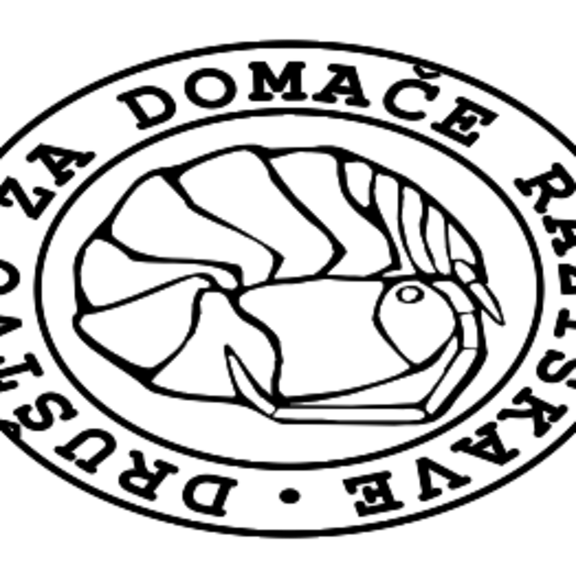Difference between revisions of "Domestic Research Society"
(mwtool_article) |
|||
| (16 intermediate revisions by 4 users not shown) | |||
| Line 1: | Line 1: | ||
{{Article | {{Article | ||
|status = PHOTO | |status = PHOTO | ||
| − | |maintainer = | + | |maintainer = Editor |
}} | }} | ||
| Line 23: | Line 23: | ||
{{Teaser| | {{Teaser| | ||
| + | |||
| + | {{image|Domestic Research Society 2010 Word for Word, Without Words project.JPG}} | ||
The [[Domestic Research Society]] (DRS) was established in [[Established::2004]] by visual artists [[Alenka Pirman]] and [[Damijan Kracina]], and art historian [[Jani Pirnat]]. Under the motto "nothing of that which is domestic is alien to us" the society documents, collects, researches and presents domestic phenomena as installations, exhibitions or web projects related to the field of culture, art, science, conservation, and education. | The [[Domestic Research Society]] (DRS) was established in [[Established::2004]] by visual artists [[Alenka Pirman]] and [[Damijan Kracina]], and art historian [[Jani Pirnat]]. Under the motto "nothing of that which is domestic is alien to us" the society documents, collects, researches and presents domestic phenomena as installations, exhibitions or web projects related to the field of culture, art, science, conservation, and education. | ||
| + | }} | ||
| − | Alongside | + | {{wide image|Domestic Research Society 2015 The Animal Dance.JPG}} |
| + | Alongside a spoken Slovenian collaborative online dictionary [[Razvezani jezik - The Unleashed Tongue]], launched in 2004 (and closed in 2019), the team has conceived several engaging visual arts projects, the ''Word for Word, Without Words'', an interdisciplinary exhibition in [[City Art Gallery Ljubljana]], or the ''Animal Dance Macabre'' that commemorates the animals in the World War One. | ||
| − | + | ==Projects== | |
| − | + | In 2004 the team conceived an engaging public art project entitled ''The Animals 1914–1918'' installed in Kobarid. From 2005 to 2010 a modular display laboratory called "Kabinet" (The Cabinet), a temporary exhibiting space (located in the inner courtyard of the [[Škuc Gallery]], was conceived in relation to the phenomenon of private collections and their displays. The following projects took place in the Cabinet: ''La Capilla Atomica''; ''Alternations'' by [[Jani Pirnat]]; ''Shut Your Eyes and Watch'' (Silent Lectures) and ''On Profession II - Rog Teachings'' both by [[Alenka Pirman]], [[Folk Museum of Nani Poljanec Rogaška Slatina]] curated by Pirnat; ''Specimen'' by [[Damijan Kracina]] and [[Jani Pirnat]]; ''Napeto v kabinetu'' [Distended Cabinet] installation by [[Irena Romih]]; ''Jelenometry'' research exhibition by Alexei Monroe and DRS members (a hunt for the symbolic Stag on the borders of natural science, humanities, and art). | |
| − | }} | + | {{image|Folk Museum of Nani Poljanec 2006 Domestic Research Society Photo Damijan Kracina (2).JPG}} |
| − | + | The ongoing project by DRS ''S'pajkanje'' [Domestic Spider] started as an extensive research on the metal wall spider, an ornament that has been adorning the walls of Slovene homes for almost 60 years, in the meantime becoming so commonplace that it gets overlooked even by its owners and their neighbours. Some of the findings were displayed at the [[Oton Župančič Library|Kolodvor Library]] in September 2009. | |
| − | In | + | In the summer of 2014 [[Katarina Toman Kracina]] and the Domestic Research Society's members painted a 7-metres long canvas an Animal Dance Macabre based on the a late-medieval Hrastovlje Dance Macabre fresco. The ''Živali/Gli animali/Tiere 1914—1918'' artwork that commemorates the animals in the World War One was installed first next to Mangart mountain hut, close to where the battle positions on Isonzo front were set up 100 years ago. Later on the painting was presented at the [[National Museum of Contemporary History]] and at the [[Krško Gallery]]. |
| − | + | {{Vimeo|167659586}} | |
===''Artwork'' educational project=== | ===''Artwork'' educational project=== | ||
| Line 44: | Line 48: | ||
==International presence== | ==International presence== | ||
| − | Domestic Research Society | + | Domestic Research Society participated at the Crazy Curators Biennial in Bratislava in 2008, curated by [[Alenka Gregorič]] and in 2010 it was hosted by the Superficie Totale (Giovanni Morbin) in Cornedo Vicentino, Italy. In 2012 the society and its partner associations SIZ (Rijeka, Croatia) and PENSART (Madrid, Spain) won a research and development grant by the European Cultural Foundation for the ''Hard Facts'' project. The project focused on the DIY historisation methods and took place in Vienna, Ljubljana, Madrid and Rijeka in 2012–2013. |
| + | |||
| + | In 2016 the Domestic Research Society got engaged in TRACES, a multi-annual interdisciplinary research project that tackled the ‘hard-case’ of contentious heritage and its transmitting via new forms of collaboration between artists, researchers and cultural institutions. TRACES was funded under the EU Horizon 2020 Reflective Society programme and involved collaboration of 11 research institutions from Austria, Italy, Germany, Norway, Switzerland, Romania, Slovenia and the UK. The [[Domestic Research Society]] conducted a research ''Casting of Death'' together with the experts from [[National and University Library]], [[Moderna galerija (MG)]], and [[City Museum of Ljubljana]]. | ||
==See also== | ==See also== | ||
*[[Razvezani jezik - The Unleashed Tongue]] | *[[Razvezani jezik - The Unleashed Tongue]] | ||
*[[Folk Museum of Nani Poljanec Rogaška Slatina]] | *[[Folk Museum of Nani Poljanec Rogaška Slatina]] | ||
| − | |||
== External links == | == External links == | ||
| − | * [http:// | + | * [http://ddr.si/en/ Domestic Research Society] |
| − | * [ | + | * [http://www.traces.polimi.it/ TRACES website] |
* [http://videolectures.net/umetnina/ The ''Artwork'' series of lectures] on [[VideoLectures.Net]] (in Slovenian) | * [http://videolectures.net/umetnina/ The ''Artwork'' series of lectures] on [[VideoLectures.Net]] (in Slovenian) | ||
* [http://spajkblog.wordpress.com/ The ''S'pajkanje'' research project's blog] (in Slovenian) | * [http://spajkblog.wordpress.com/ The ''S'pajkanje'' research project's blog] (in Slovenian) | ||
| Line 60: | Line 65: | ||
[[Category:Exhibition organisers]] | [[Category:Exhibition organisers]] | ||
| − | |||
[[Category:Producers]] | [[Category:Producers]] | ||
[[Category:Publishers]] | [[Category:Publishers]] | ||
| Line 73: | Line 77: | ||
[[Category:Research]] | [[Category:Research]] | ||
[[Category:World War I]] | [[Category:World War I]] | ||
| + | [[Category:Education_and_Research]] | ||
Latest revision as of 01:42, 19 February 2021
-
9 May 2016
The Domestic Research Society presents the research project Casting of Death at the TRACES kick-off meeting in Klagenfurt
-
2 Apr 2014
-
to
3 Mar 2013
30 Mar 2013
The international project Hard Facts by the Domestic Research Society, Pensart and SIZ under research in Madrid
-
15 Feb 2013
The Domestic Research Society involved in Speedarting at the JUSTMAD4 Art Fair, hosted by the Pensart Cultura AC
-
to
8 Feb 2013
28 Feb 2013
The international project Hard Facts by the Domestic Research Society, Pensart and SIZ under research in Madrid
-
27 Sep 2012
The Hard Facts project presented by the Domestic Research Society in cooperation with SIZ Association (Rijeka) at the round table
-
1 Jun 2012
Italy San Pietro al Natisone/Špeter Slovenov Slovenski kulturni center/Centro culturale sloveno
-
to
26 Nov 2010
27 Nov 2010
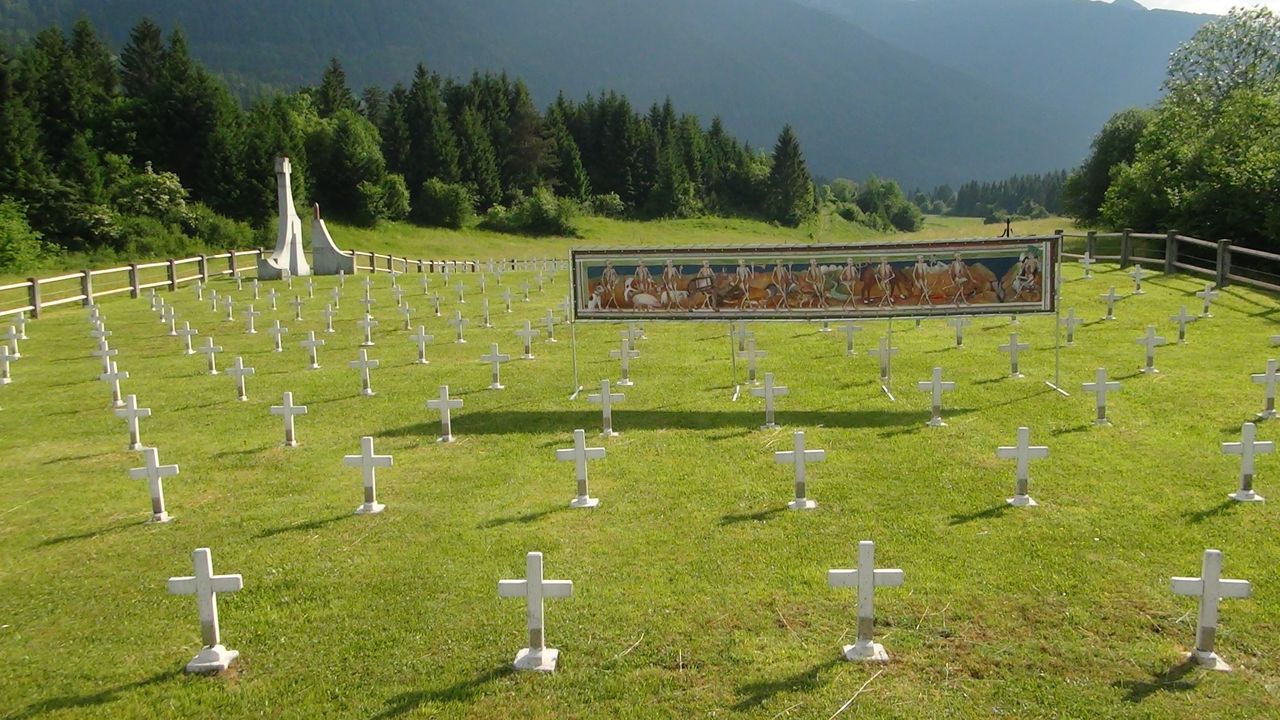
Projects
In 2004 the team conceived an engaging public art project entitled The Animals 1914–1918 installed in Kobarid. From 2005 to 2010 a modular display laboratory called "Kabinet" (The Cabinet), a temporary exhibiting space (located in the inner courtyard of the Škuc Gallery, was conceived in relation to the phenomenon of private collections and their displays. The following projects took place in the Cabinet: La Capilla Atomica; Alternations by Jani Pirnat; Shut Your Eyes and Watch (Silent Lectures) and On Profession II - Rog Teachings both by Alenka Pirman, Folk Museum of Nani Poljanec Rogaška Slatina curated by Pirnat; Specimen by Damijan Kracina and Jani Pirnat; Napeto v kabinetu [Distended Cabinet] installation by Irena Romih; Jelenometry research exhibition by Alexei Monroe and DRS members (a hunt for the symbolic Stag on the borders of natural science, humanities, and art).
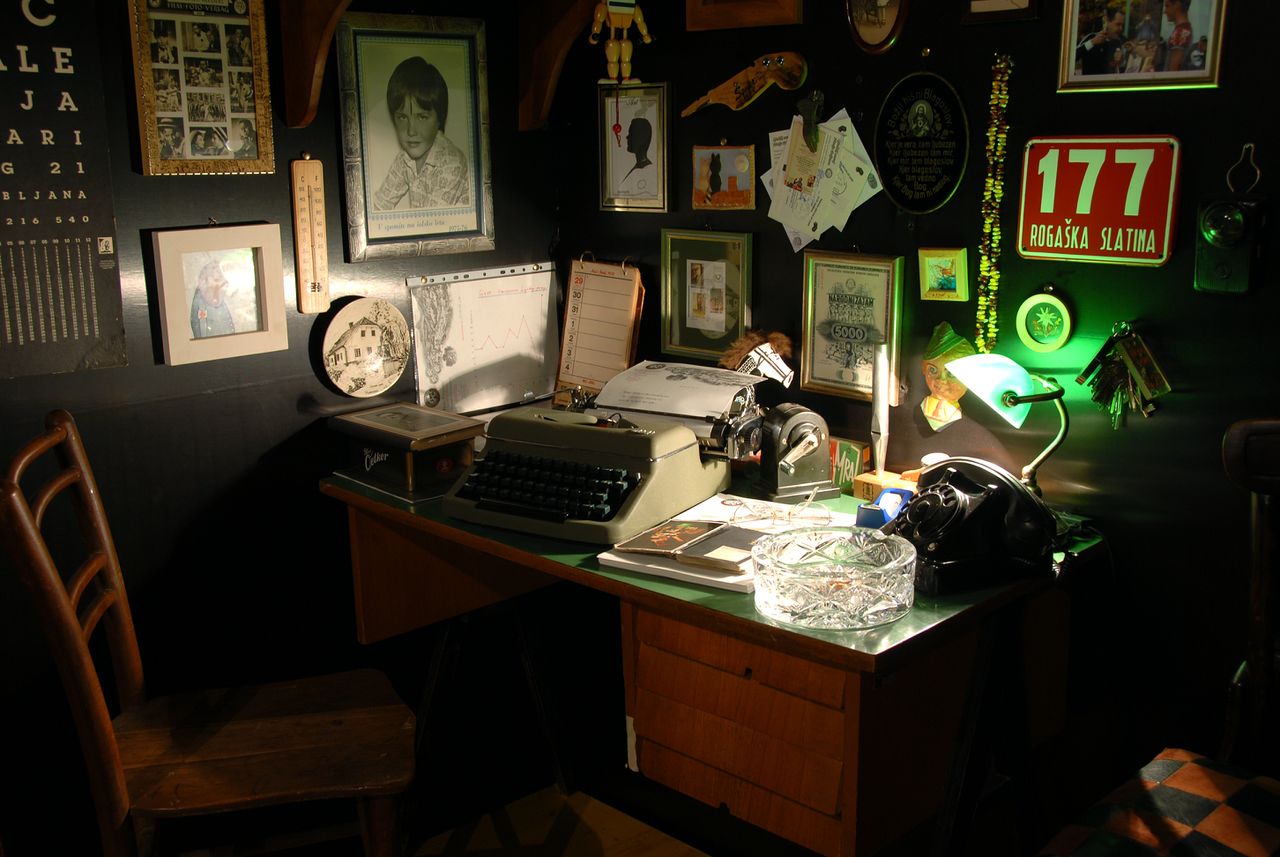
The ongoing project by DRS S'pajkanje [Domestic Spider] started as an extensive research on the metal wall spider, an ornament that has been adorning the walls of Slovene homes for almost 60 years, in the meantime becoming so commonplace that it gets overlooked even by its owners and their neighbours. Some of the findings were displayed at the Kolodvor Library in September 2009.
In the summer of 2014 Katarina Toman Kracina and the Domestic Research Society's members painted a 7-metres long canvas an Animal Dance Macabre based on the a late-medieval Hrastovlje Dance Macabre fresco. The Živali/Gli animali/Tiere 1914—1918 artwork that commemorates the animals in the World War One was installed first next to Mangart mountain hut, close to where the battle positions on Isonzo front were set up 100 years ago. Later on the painting was presented at the National Museum of Contemporary History and at the Krško Gallery.
Artwork educational project
From 2007 to 2010 DRS co-organised a joint project with Škuc Gallery and Celje Gallery of Contemporary Art: Artwork – a series of lectures that focused on individual works of art. The first lecturers were Tomaž Brejc and Bojan Gorenec followed by Jože Barši, Miklavž Komelj and Dunja Kukovec in 2008 and Dragan Živadinov, Meta Gabršek Prosenc and Martina Vovk in 2009. In 2010 Artwork featured lectures by Beti Žerovc and Jiři Bezlaj.
International presence
Domestic Research Society participated at the Crazy Curators Biennial in Bratislava in 2008, curated by Alenka Gregorič and in 2010 it was hosted by the Superficie Totale (Giovanni Morbin) in Cornedo Vicentino, Italy. In 2012 the society and its partner associations SIZ (Rijeka, Croatia) and PENSART (Madrid, Spain) won a research and development grant by the European Cultural Foundation for the Hard Facts project. The project focused on the DIY historisation methods and took place in Vienna, Ljubljana, Madrid and Rijeka in 2012–2013.
In 2016 the Domestic Research Society got engaged in TRACES, a multi-annual interdisciplinary research project that tackled the ‘hard-case’ of contentious heritage and its transmitting via new forms of collaboration between artists, researchers and cultural institutions. TRACES was funded under the EU Horizon 2020 Reflective Society programme and involved collaboration of 11 research institutions from Austria, Italy, Germany, Norway, Switzerland, Romania, Slovenia and the UK. The Domestic Research Society conducted a research Casting of Death together with the experts from National and University Library, Moderna galerija (MG), and City Museum of Ljubljana.
See also
External links
- Domestic Research Society
- TRACES website
- The Artwork series of lectures on VideoLectures.Net (in Slovenian)
- The S'pajkanje research project's blog (in Slovenian)



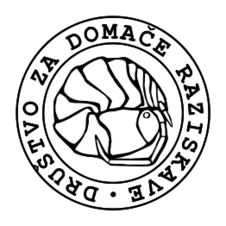
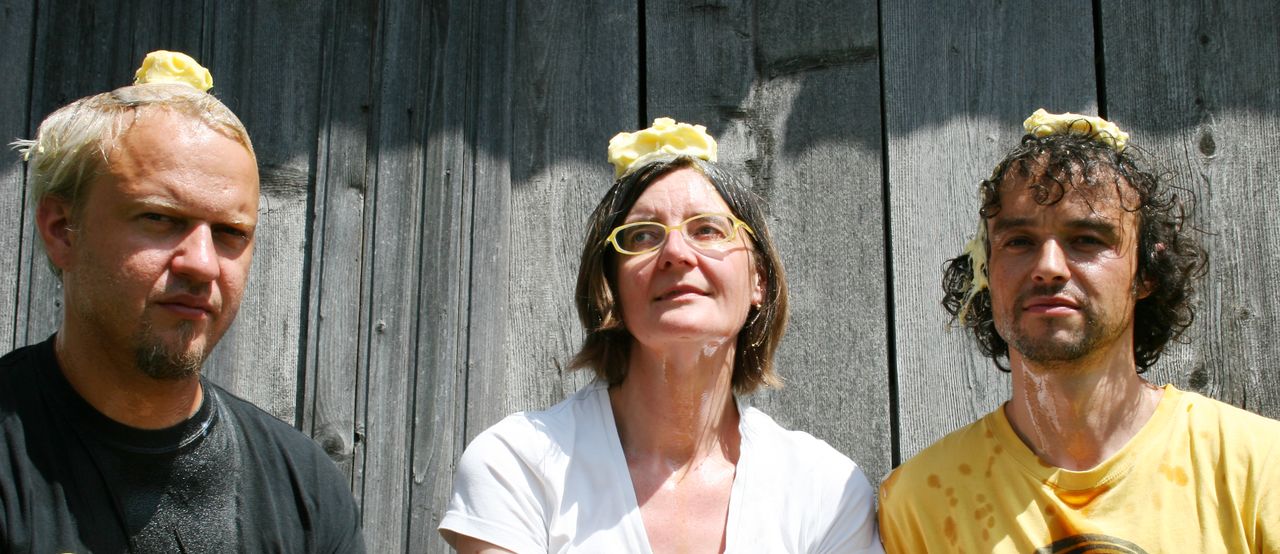
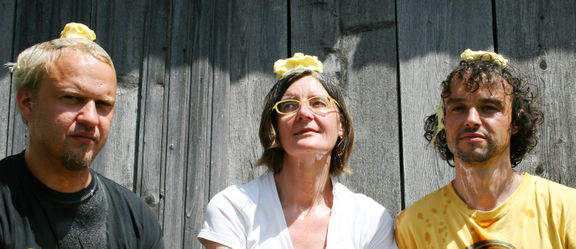
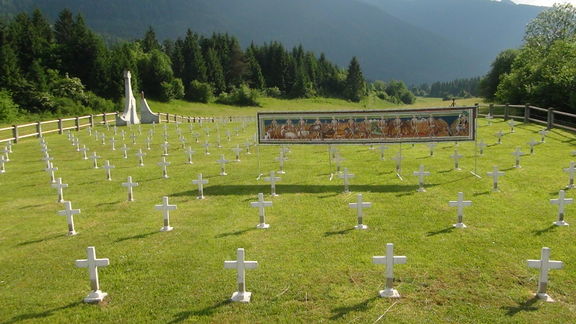
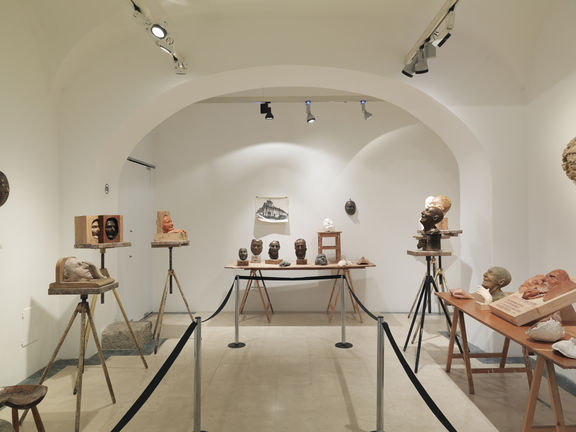
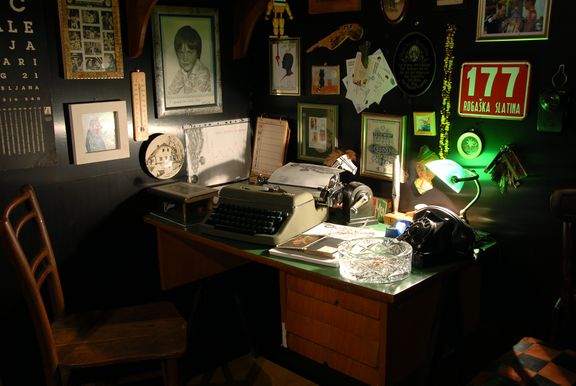
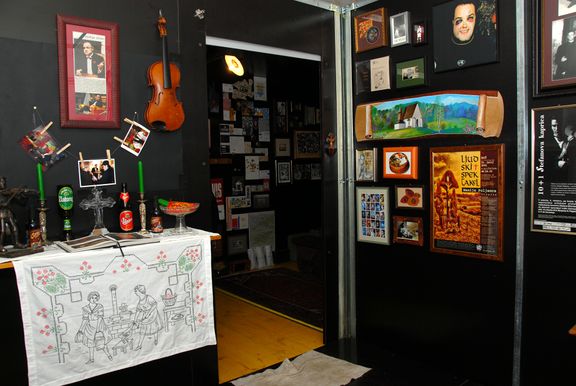
![Vojaki barvajo belca [Soldiers painting the white horse], Ilustrirani glasnik, 1914, used on the cover of the catalogue Winter Stock by Domestic Research Society, 2008](/images/thumb/4/44/Ilustrirani_glasnik_1914_Vojaki_barvajo_belca.JPG/576px-Ilustrirani_glasnik_1914_Vojaki_barvajo_belca.JPG)
